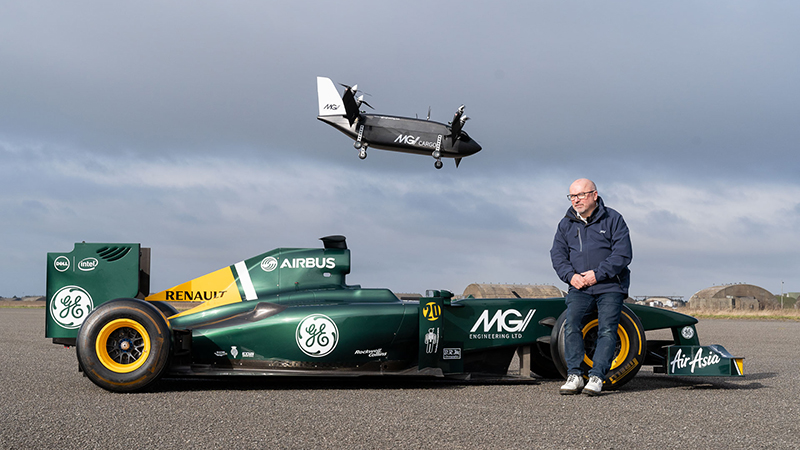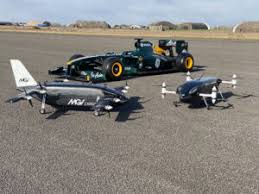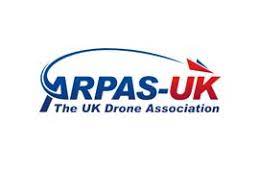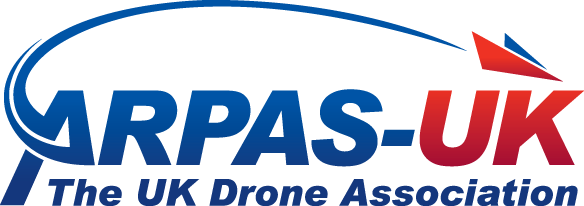
MGI Engineering CEO Mike Gascoyne and one of the Mosquito drones (Credit: MGI Engineering)
Formula One specialist MGI Engineering has revealed two cargo drone technology demonstrators, using its motorsport mindset to tackle challenges in the sector.
The Mosquito UAVs (unmanned aerial vehicles) were unveiled by the Oxfordshire firm today (19 April) at the eVTOL Insights’ London Conference.
The company, which launched Lotus F1 Racing in 2009 and specialises in applying F1 technology, R&D, simulation and innovation to mainstream automotive, aerospace and marine industries, said that lightweight composite structures and a “highly efficient, fast-paced” iterative design process are key elements of its approach to cargo drones.
The configurable Mosquito design has two variants – the first is a tilt rotor configuration, with two rotors on each corner capable of tilting from 45º forward to 45º backward, while the second features eight rotors with direct drive motors distributed across four wings, each using a tilt mechanism to control pitch and roll. The second variant can take off vertically and transition to winged flight for long distance missions.
“The modular approach to this vehicle, where wings and rotors can be configured according to the mission profile, allows for scalable common platforms using common battery modules,” an MGI announcement said. “The vehicle platform concept has also been designed to be scaled up efficiently, to payload capable vehicles carrying up to 500kg.”
The company aims to provide its consultancy services to the cargo eVTOL (electric vertical take-off and landing) industry. The vehicles are being developed to showcase its vision and capabilities in the area.
“We believe that developing sustainable electric aviation vehicles, combined with our unique expertise and experience from Formula One of lightweight hybrid composite vehicles, is the future of the transport industry,” said CEO Mike Gascoyne.
“We are very happy to have a fully working demonstrator vehicle that has passed all our tests to date, including fully transitioning from vertical to horizontal flight. We’re excited to see where our development journey takes us and look forward to solving the unique and novel challenges the industry presents us with.”






